Principle Investigator
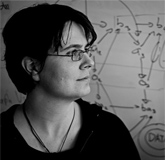
Iris van Rooij leads the Computational Cognitive Science group at the Donders Institute for Brain, Cognition and Behaviour. Her main scientific aim is to devise computational explanations of core cognitive abilities, such as inference, prediction, analogizing and communication. Not enchanted by ‘just so stories’, she requires these explanations to be both computationally explicit yet scalable. To develop novel formal and conceptual tools for devising such explanations, she draws upon computational complexity theory, philosophy of cognitive science, and the full range of cognitive modeling approaches.
- Website: https://irisvanrooijcogsci.com
- E-mail: i.vanrooij'at'donders.ru.nl
Postdoctoral Researchers
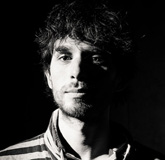
Mark Blokpoel is a post-doctoral researcher in the Language in Interaction consortium. His main research interest is to understand people's inferential capacities that underlie their communicative abilities. For example, how is it possible that we can understand a foreigner who does not speak our language but uses novel gestures to communicate? His work involves computational modeling (e.g. Bayesian and Structure Mapping Theory), robotic/agent-based simulations, computational complexity analysis and philosophy of mind.
- Website: http://www.markblokpoel.com/
- E-mail: m.blokpoel'at'donders.ru.nl
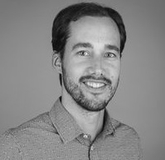
Bob van Tiel is a post-doctoral researcher in the Language in Interaction consortium. His research aim is to characterise linguistic meaning using formal theory, experimental methods, and computational modelling. For example, he has studied how (neurotypical and autistic) people communicate things implicitly (e.g., 'You did okay' conveying that you did not do very well). He is currently investigating the notion of compositionality (according to which the meaning of a sentence is determined by the meanings of the words and how they are combined) and the problems that surround it.
- Website: http://sites.google.com/site/bobvantiel/
- E-mail: bobvantiel'at'gmail.com
PhD Candidates
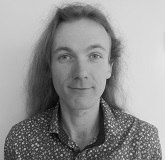
Nils Donselaar is a PhD student at the Donders Institute for Brain, Cognition and Behaviour. Working under supervision of Johan Kwisthout, he is looking to further explore the (in)tractability of approximate inferences in Bayesian networks. While his research is mainly focused on parameterized complexity theory, he also strives to link theoretical insights from this field to the Predictive Processing account in neuroscience. In this way, he aims to investigate if and in what way the approximate inferences involved can be tractable for parameters which are plausibly constrained by the biology of the brain.
- Website: http://www.ru.nl/people/donders/donselaar-n/
- E-mail: n.donselaar'at'donders.ru.nl

Iris van de Pol is a PhD candidate at the Institute for Logic, Language and Computation (ILLC) at the University of Amsterdam and is affiliated with the Donders Institute for Brain, Cognition and Behaviour. She is jointly supervised by Jakub Szymanik, Iris van Rooij, Ivan Toni and Sonja Smets. Her project is about the complexity of communicating and reasoning about mental states, in particular in the context of non-verbal communication games. Her research involves computational modeling (using epistemic logic and game theory) and (parameterized) complexity analysis, and collaborating with cognitive neuroscientists to design and conduct behavioral and neuroscientific experiments to test model predictions. She is also interested in philosophy of cognitive science, in particular in the different levels of investigation used in cognitive science and related methodological and philosophical issues.
- E-mail: I.P.A.vandePol'at'uva.nl
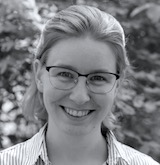
Laura van de Braak is a PhD candidate at the Donders Institute for Brain, Cognition and Behaviour. Under the supervision of Iris van Rooij, Mark Blokpoel, Mark Dingemanse and Ivan Toni, Laura is working on designing and creating a computational infrastructure that can deal with resolving misunderstandings in (human) communication, in a cognitively plausible way. Specifically, their main research focusses on what happens to understanding if new information is presented within the current context. Their work involves computational and agent-based modelling.
- E-mail: l.vandebraak'at'donders.ru.nl
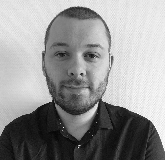
Erwin de Wolff is a PhD student at the Donders Institute for Brain, Cognition and Behaviour. The aim of his research is to outline theoretical restrictions and mechanisms for structural changes to beliefs structures used by agents. One can interpret this informally as the `changes of mind' or `aha-erlebnis' that humans go through during the learning process. The research is multidisciplinary, taking inspiration from predictive processing literature, developmental psychology, philosophy and data science, to name a few.
- E-mail: l.vandebraak'at'donders.ru.nl
Master Students

Jacqueline van Arkel is an MSc student Human-Machine Communication at the Rijksuniversiteit Groningen. Supervised by Marieke Woensdregt and Mark Blokpoel, Jacqueline carries out an external research project on other-initiated repair (e.g., when saying 'Huh?') in pragmatic communication. Currently, she focuses on asymmetry between the belief systems (i.e., different beliefs about the world) of two interlocutors as a source of misunderstanding, which can be resolved by belief revision after initiating and receiving repair. Her main interests lie within the field of cognitive language modelling and computational linguistics.
Affiliated Members

Marieke Woensdregt is a post-doctoral researcher at the Centre for Language Studies. Her main research interests lie in how language is shaped for and by social interaction, and how language in turn has shaped human social cognition. For example, how are the small words we use for streamlining conversation, such as the open-request repair initiator "Huh?", shaped by the pressures at play in interaction? And how does the availability of such words in turn affect the structure of language? Her work involves computational modelling and agent-based simulations.
- Website: https://marieke-woensdregt.github.io
- E-mail: m.woensdregt'at'let.ru.nl
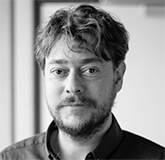
Johan Kwisthout is an Assistant Professor at the Donders Institute for Brain, Cognition and Behaviour, and coordinator of the AI MSc programme. His research interests may be paraphrased as "Where Bayes, Turing, and Fodor meet": reasoning under uncertainty, computational complexity, and the application of both fields of study in (theoretical) cognitive (neuro-)science. He is interested in topics related to (Bayesian) abduction and relevancy, both from a philosophical, cognitive, and computational perspective. Currently he is mostly interested in resource-bounded approximate computations in the brain, in particular in identifying sources of computational intractability and investigating how the proposed algorithms for these computations can be rendered tractable, relative to the brain’s resources.
- Website: http://www.socsci.ru.nl/johank/
- E-mail: j.kwisthout'at'donders.ru.nl
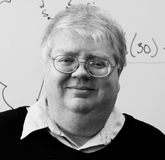
Todd Wareham is a Professor in the Department of Computer Science at Memorial University of Newfoundland. His research interest is in applying analysis techniques from computational complexity theory to problems arising in various disciplines, including cognitive science, robotics, linguistics, and molecular biology. He has special interest and expertise in analogy-based cognitive processing.
- Website: http://web.cs.mun.ca/~harold/
- E-mail: harold'at'mun.ca
Alumni / Former Members

Tobias Winner
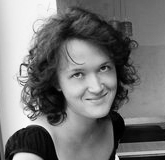
Katja Abramova

Maria Otworowska

Lieke Heil

André Klapper
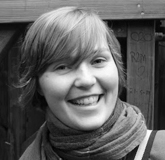
Marieke Sweers

Colby Tibbets
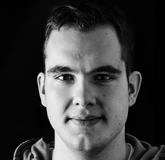
Arne Wijnia
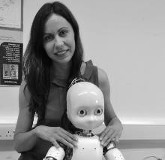
Beata J. Grzyb

George Kachergis
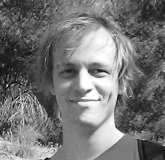
Tijl Grootswagers

Stefano Gentili
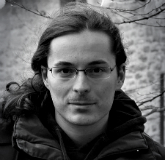
Giulio Mecacci

Marvin Uhlmann

Andrea Zeppi